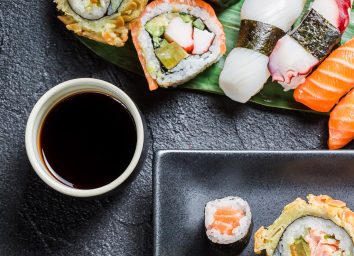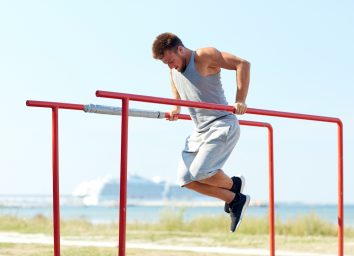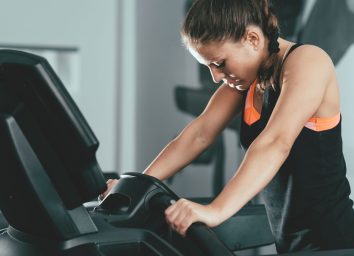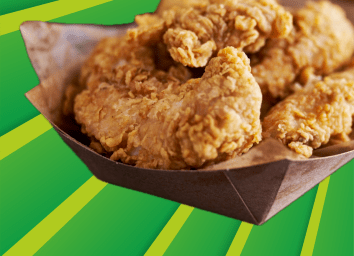Popular Foods Proven to Destroy Your Workout, According to Experts
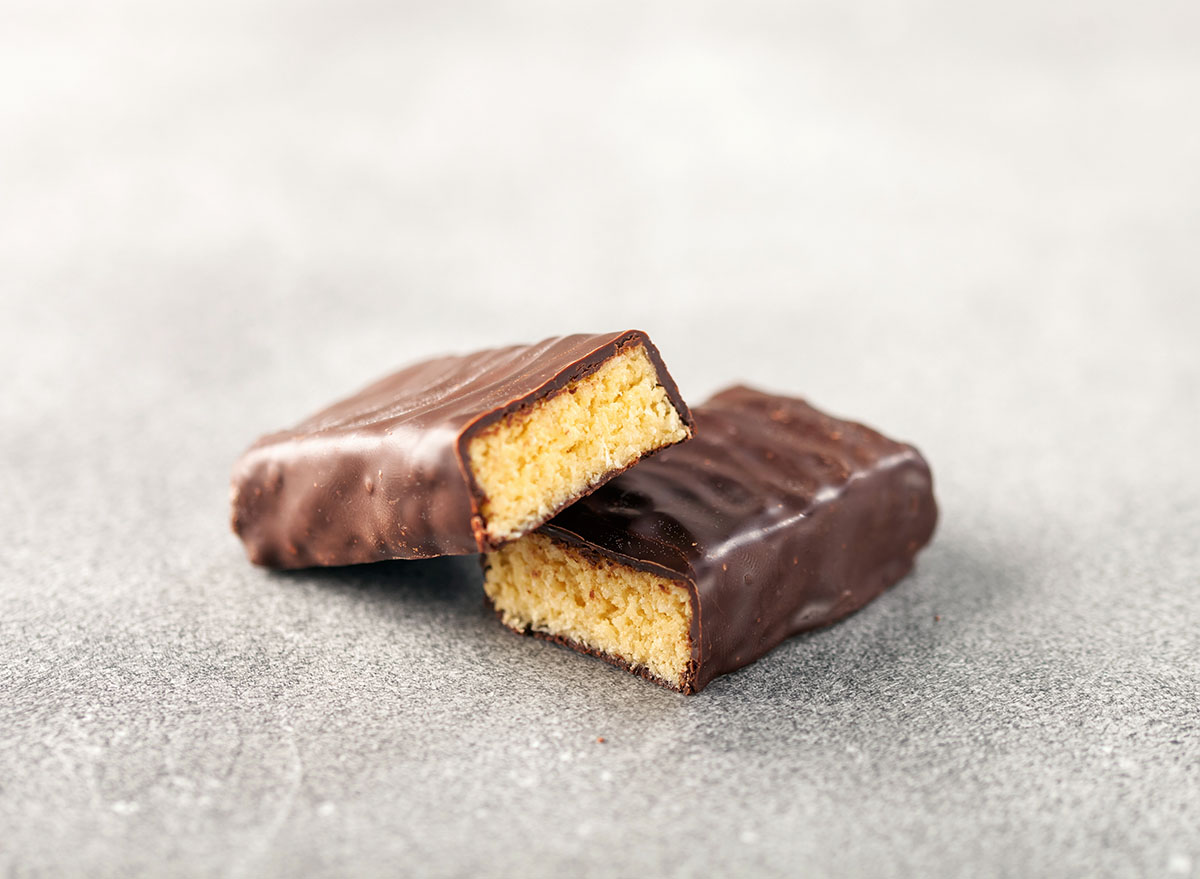
Nutrition is a huge part of having success in the gym and on the scale. While making sure your body is fueled with the proper foods to encourage muscle growth, recovery, and maintenance is essential, so, too, is avoiding the foods that can hinder your good intentions. Choosing specific foods and drinks before and after your workout can hurt your progress and make your workout unpleasant.
“Fueling up before a game, practice or workout can take your performance to the next level, provided you’re loading the right stuff onto your plate,” says Amy Kimberlain, RDN, CDCES, registered dietitian nutritionist, and National Spokesperson for the Academy of Nutrition and Dietetics. “Eating certain foods at certain times, however, can lead to a less than an effective workout. The last thing you want is GI disturbance in the middle of your workout!”
If you’re looking to fuel yourself properly before and after your workout for the best results, here are 14 foods and drinks you should avoid. Read on, and for more on how to eat healthy, don’t miss 14 Best Foods for Better Workout Results, According to Experts.
Full fat yogurt
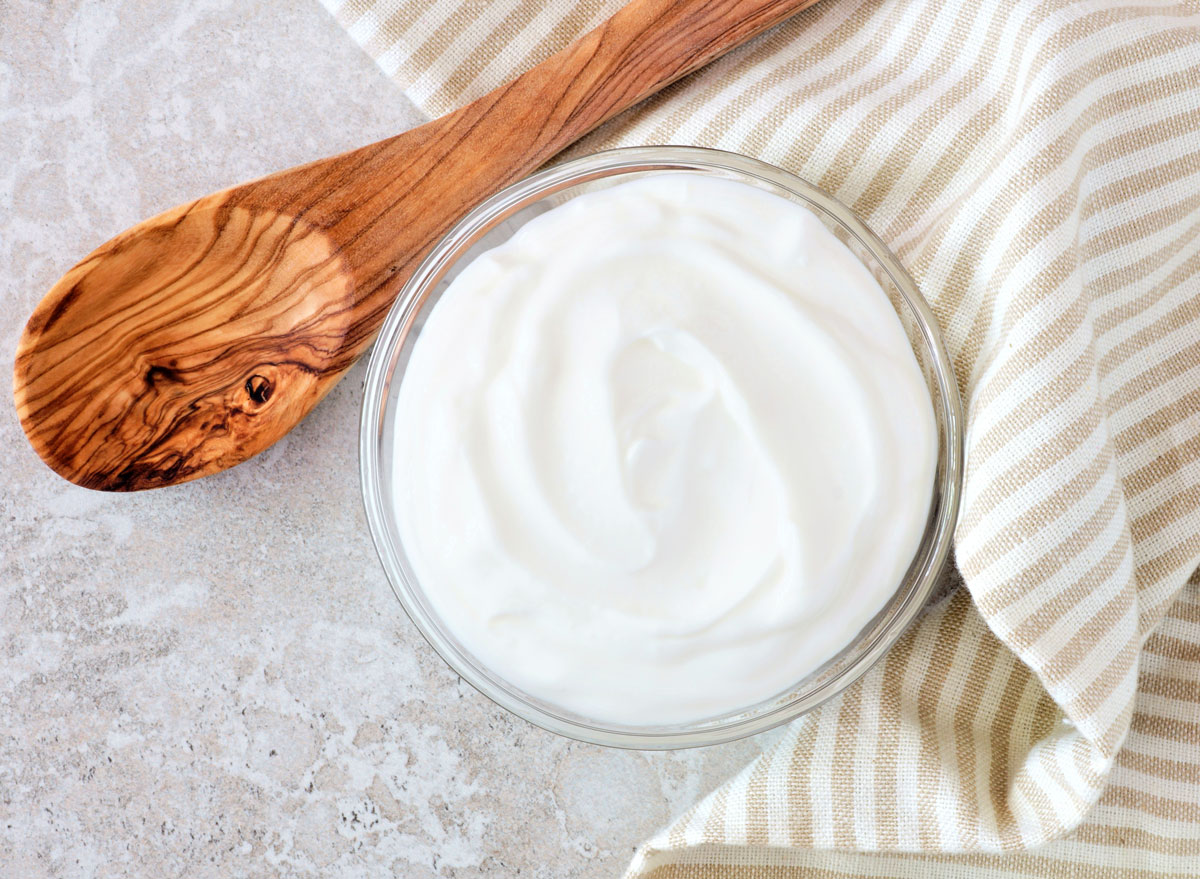
“As much as you might want to enjoy a full-fat yogurt before a workout, it might be way better to save it for after you are done,” says Keri Gans, MS, RD, CDN, author of The Small Change Diet. “Fat takes longer to digest than carbs. So, instead of giving you that needed boost of energy, it might make you a little sluggish.”
High-Sugar Coffee Drinks
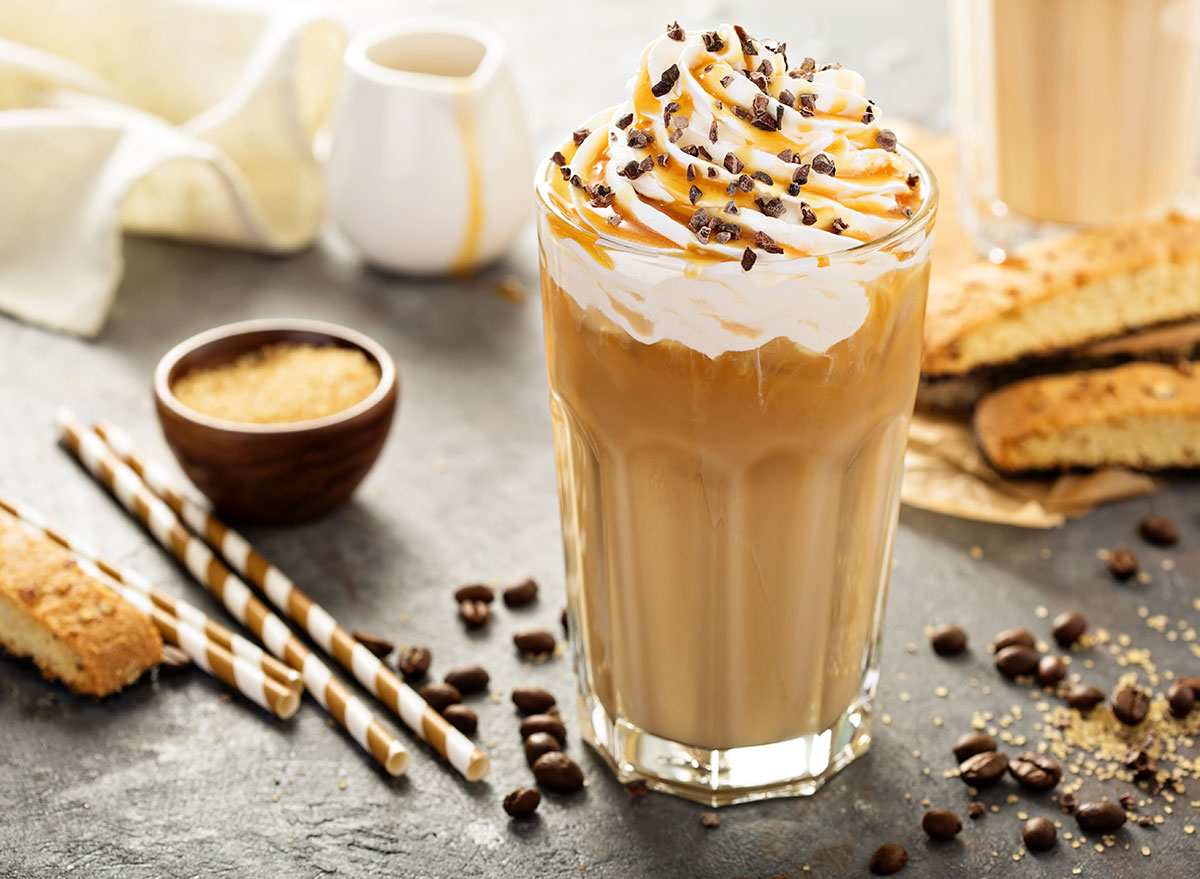
“While caffeine can be used as a way to help enhance your workout, you do want to pay attention to the drink that you’re consuming. Coffee can have a lot of added sugar and/or fat depending on what all is being added to the coffee,” says Kimberlain. “Coffee on its own provides the caffeine, but the other added ingredients – sugar and/or fat — may not only be providing you with too many calories but also too much added sugar. Sugar may cause a sudden spike in your insulin levels causing it to work more in a storage mode versus utilizing it as a source of energy for the workout (which isn’t ideal). Additionally, high sugar intake can also cause the side effect of GI distress as well (if your body isn’t used to that much sugar all at once).” See more: The Unhealthiest Coffee Drinks in America.
Beer
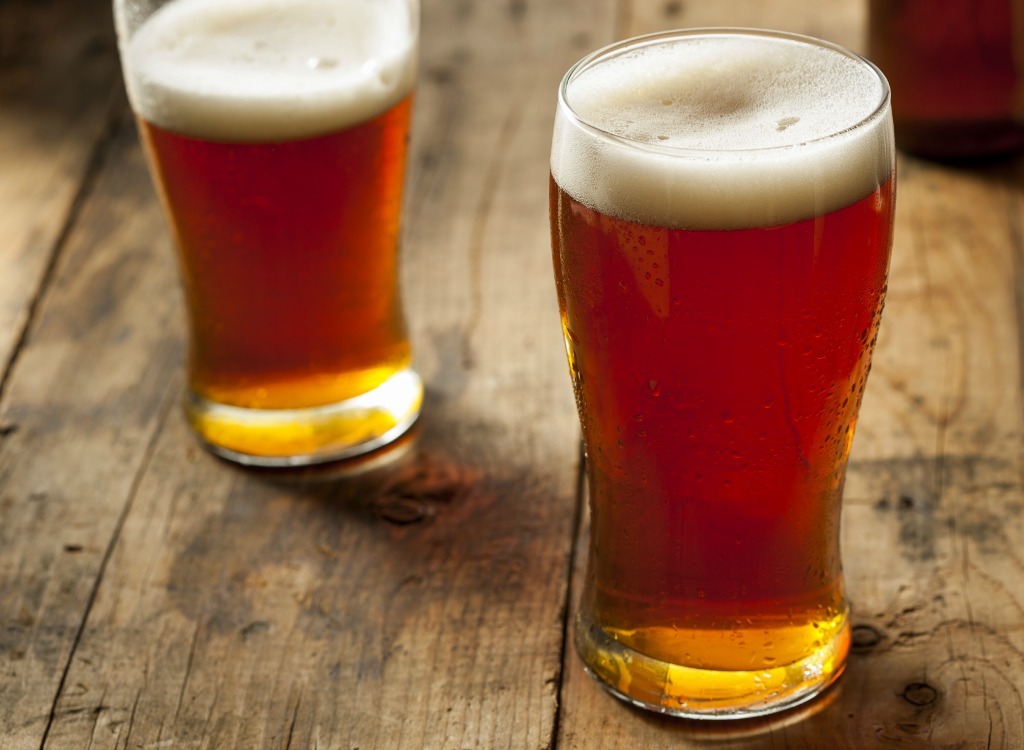
“Beer is a surprisingly common beverage choice for many recreational athletes, but it will sabotage your sports performance,” says Sue Heikkinen, MS, RD, registered dietitian for MyNetDiary. “Alcohol is a diuretic, increasing your risk of dehydration. Alcohol can impair your balance and coordination, making you more prone to injury. Alcohol also prevents your liver from releasing glycogen (stored glucose) as a source of energy during your workout. And of course, the carbonation from beer causes bloating.” Drinking beer won’t just disrupt your workout; Here’s What Happens to Your Liver When You Drink Alcohol.
Beans
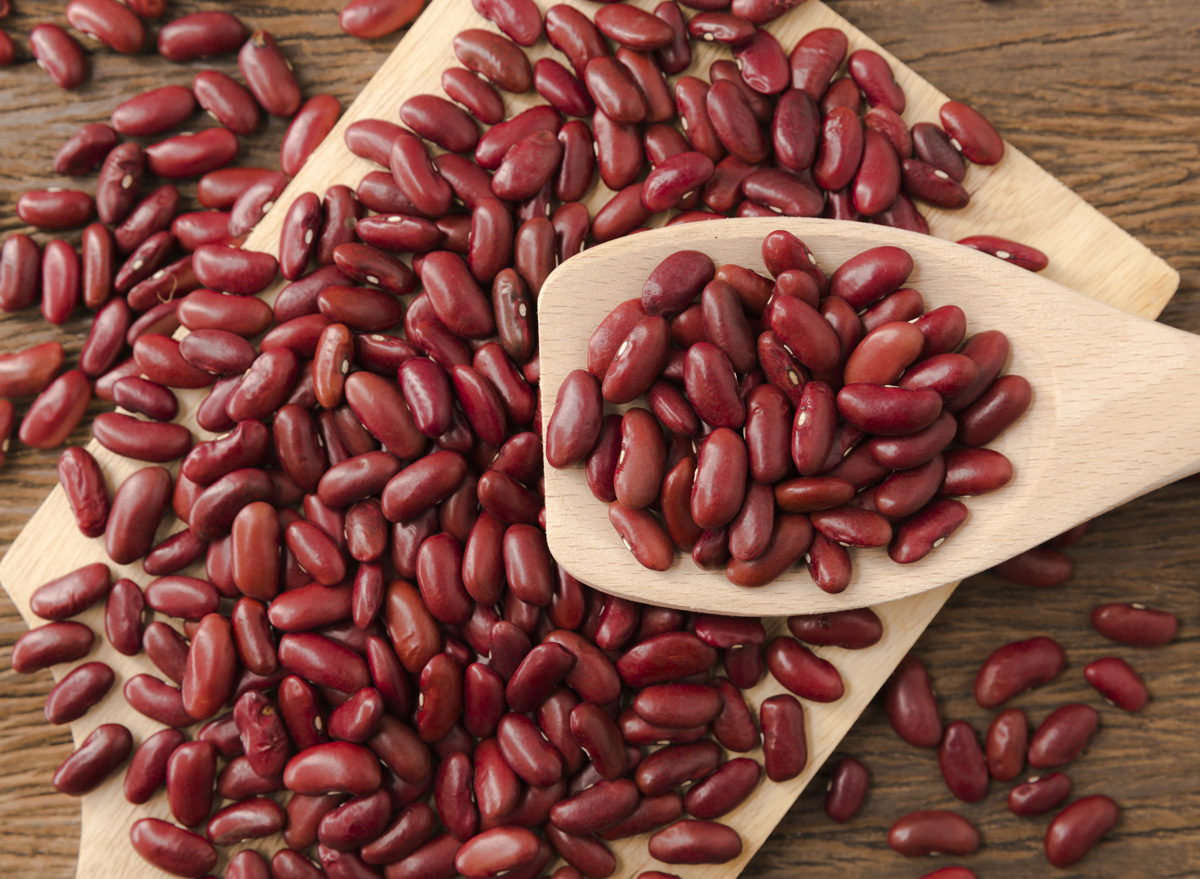
“Beans are known to contain an indigestible carbohydrate called raffinose. For some individuals, raffinose can definitely produce gas in our GI tract making their workout a little uncomfortable at times,” says Gans.
Protein bar
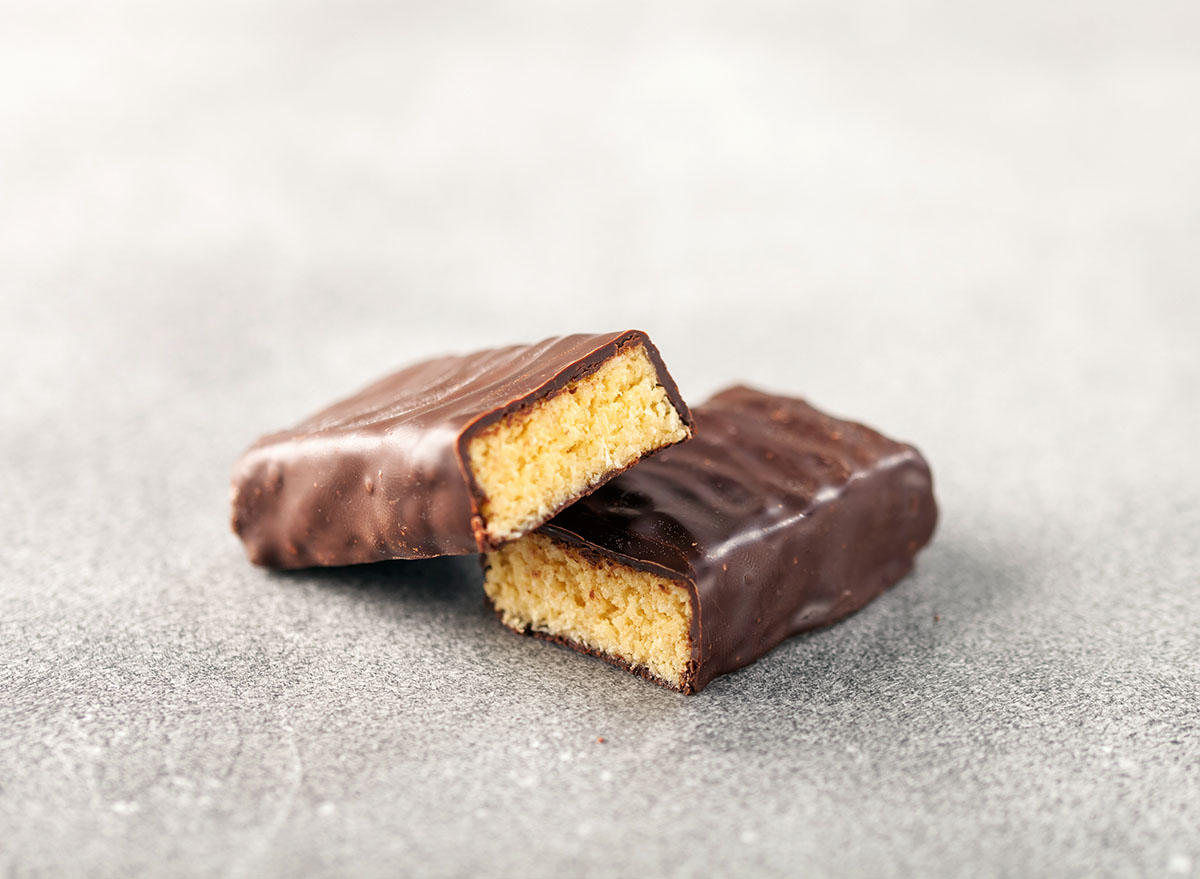
“I find that sometimes people under fuel before their workout and might do a ‘protein’ bar, when in fact they need the carbohydrates pre-workout. (And then the same goes for the post-workout ‘recovery’ people will focus on replenishing their carb stores but sometimes miss out on including enough protein to help aid recovery.),” says Kimberlain. “My general recommendation is to pay attention to the timing of meals because that will allow for you to adequately fuel (with carbs pre-workout) and also find what works for you (because what works for one person might not work for someone else, i.e. banana can make people burp up, but for some people, it’s the perfect pre-workout fuel ~1 hour before).”
Almond milk

“Almond milk is hydrating and a reliable source of calcium/vitamin D. However, most almond milk beverages have virtually no protein, and won’t give you enough energy to refuel after a workout,” says Heikkinen. “If you are using almond milk as a post-workout drink, blend it with a scoop of protein powder and a cup of frozen berries for a well-rounded recovery drink.” Try it with any of these 22 High Protein Smoothie Recipes from Diet and Fitness Experts.
Carbonated beverages
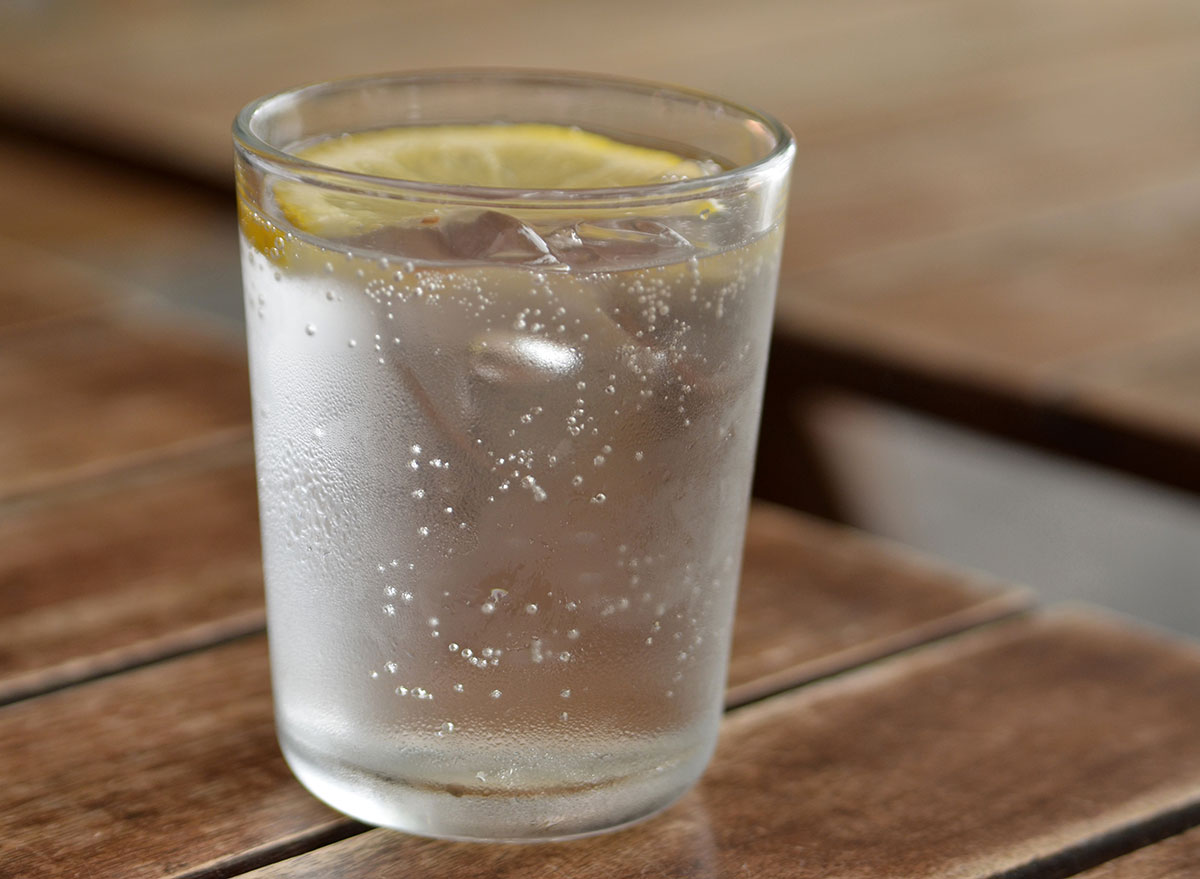
“The carbonation in some beverages may also cause gas and belching that could lead to heartburn,” says Gans.
Chia/flax/hemp seeds
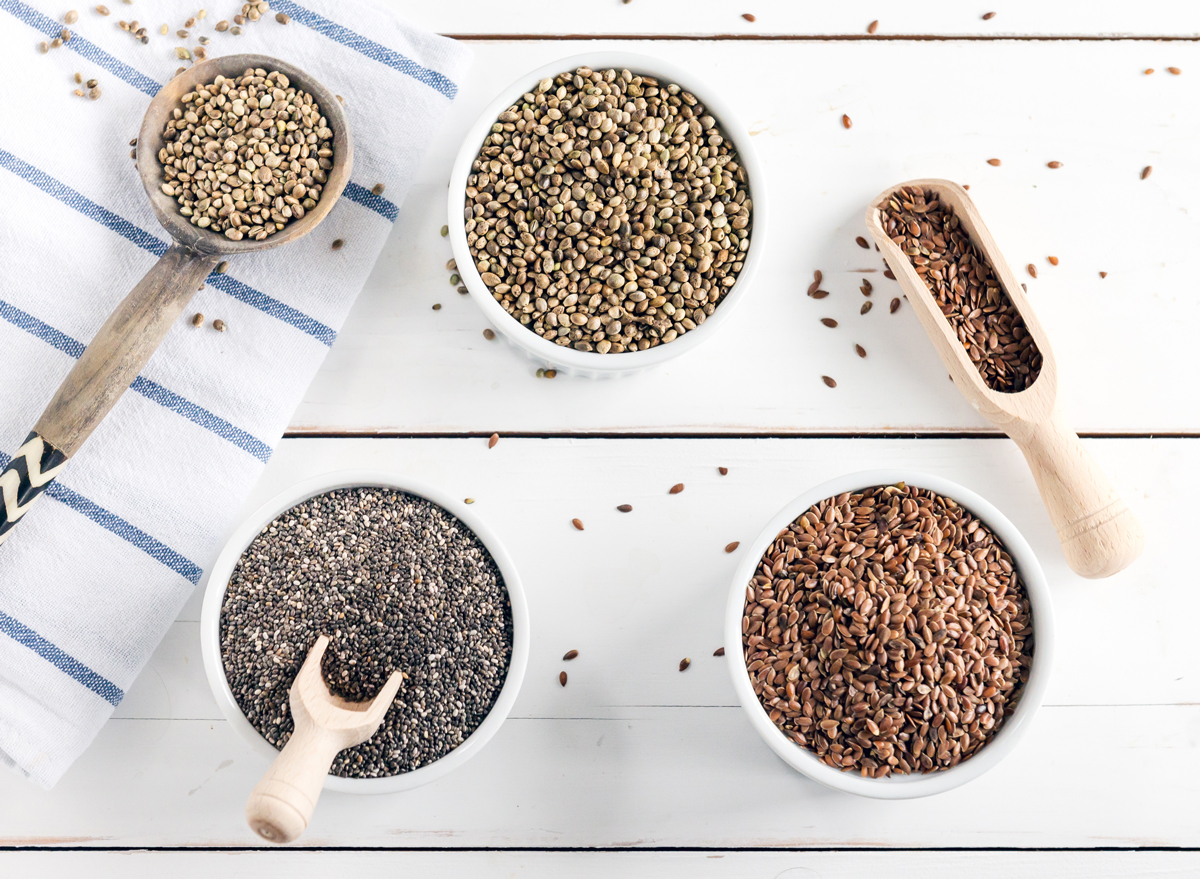
“Fiber is something that we ALL need more of, but ~2 hours before a workout, fiber is best to avoid as it can cause side effects: gas and bloating. A few high fiber foods to take into consideration: chia, flax, and hemp seeds; high-fiber bread; and different veggies. (Again, these are all healthy foods, just not right before a workout),” says Kimberlain. “The fiber can be slow to digest and that means it can stay in the stomach for a longer period of time – which depending on the timing of your workout could cause cramping (along with the gas and bloating).”
100% fruit juice
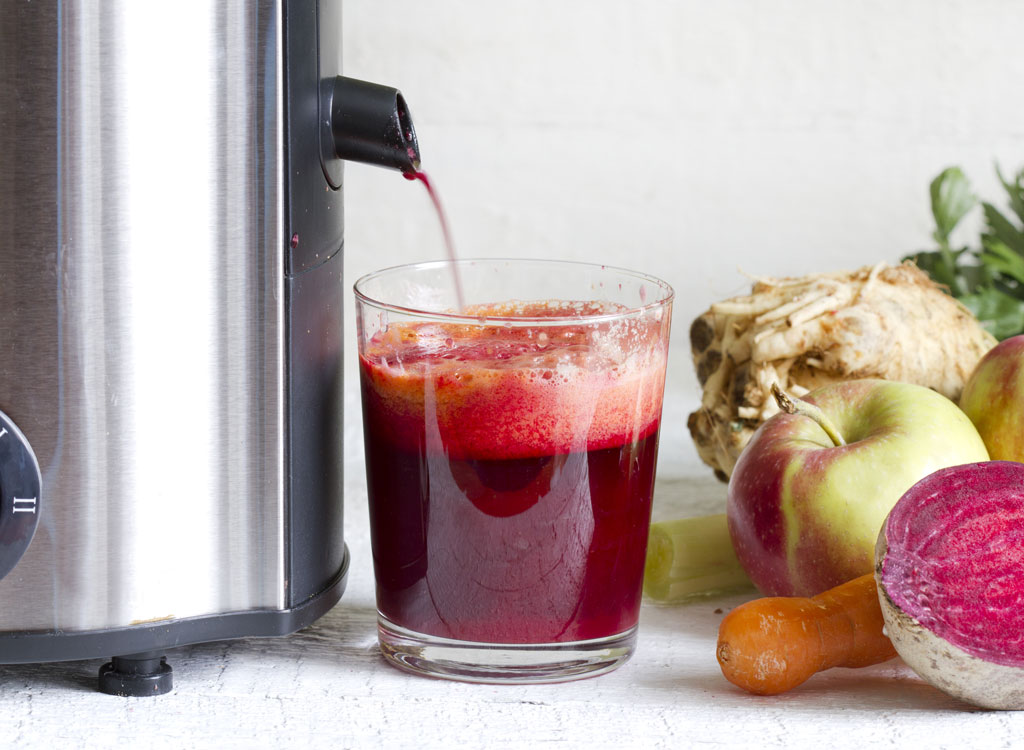
“One-hundred percent fruit juice may be filled with lots of vitamins and minerals, but unfortunately it is 100% sugar, even though naturally-occurring,” says Gans. “You will get an immediate boost of energy, but because of all the sugar, you will also most likely experience a crash as well.”
Hot sauces & spices
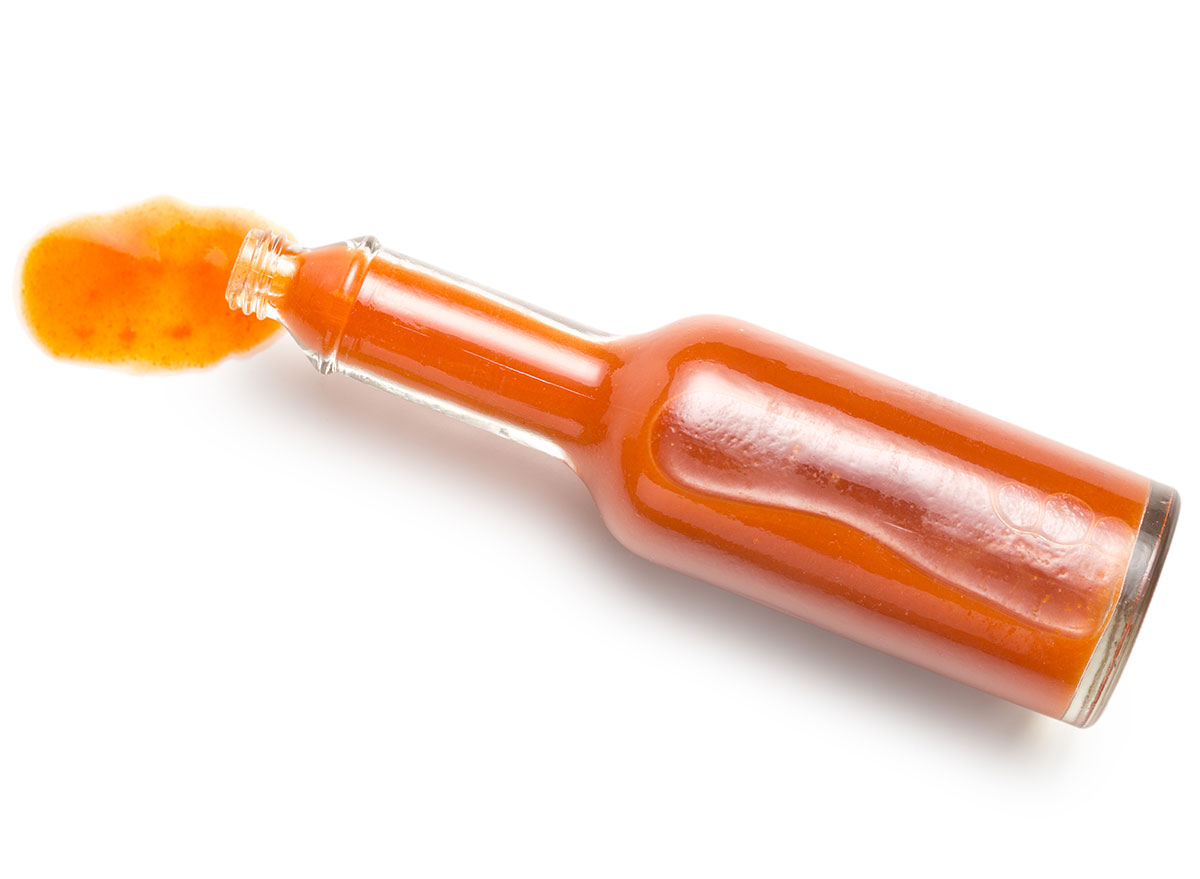
“I think it goes without saying, but it is important to mention that hot sauces and spices can be problematic. Too close to a workout they can cause heartburn and can often be described as ‘you burping up’ (it regurgitates up) if eaten too close to a workout,” says Kimberlain. “The recommendation is to avoid hot sauces, certain spices (oregano is not my friend), and other highly seasoned food. Again, the timing can play a role too (if it’s lunch, maybe it won’t be an issue, if then you’re having a snack pre-workout later afternoon).”
Fried foods
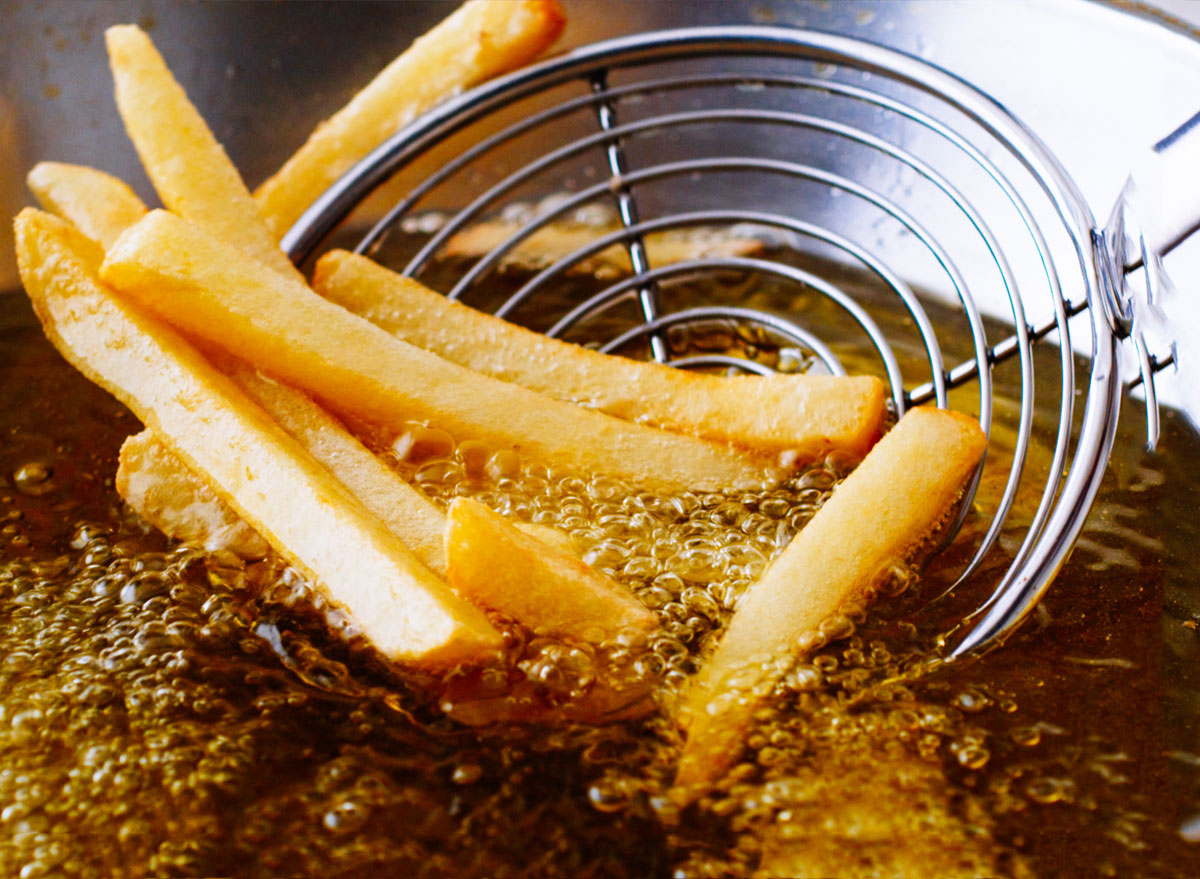
“Again, it may seem obvious on the fried foods portion, but while fat may provide flavor, it can keep you fuller longer (as it takes longer to digest) but when it comes to a workout that isn’t going to be in your favor,” says Kimberalin. “The effect? You might feel weighed down (heavy if you will) and even sluggish – the opposite of giving you the energy that you need to have a great workout.”
Apple juice
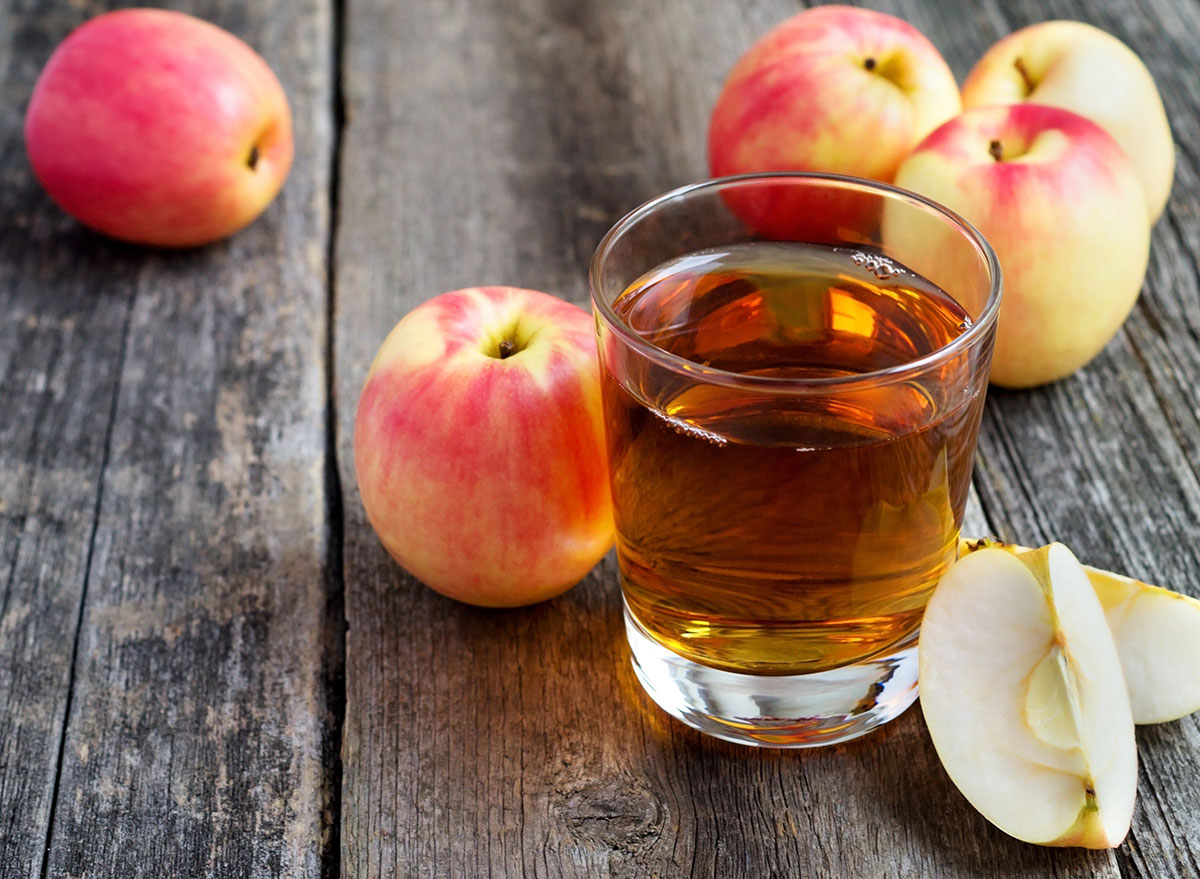
“Apple juice in particular is high in fructose and sorbitol (a naturally-occurring sugar alcohol), common triggers of stomach cramps and diarrhea,” says Heikkinen. “If you are going to use fruit juice to hydrate during a workout, try diluted orange juice with a pinch of added salt.”
Avocado
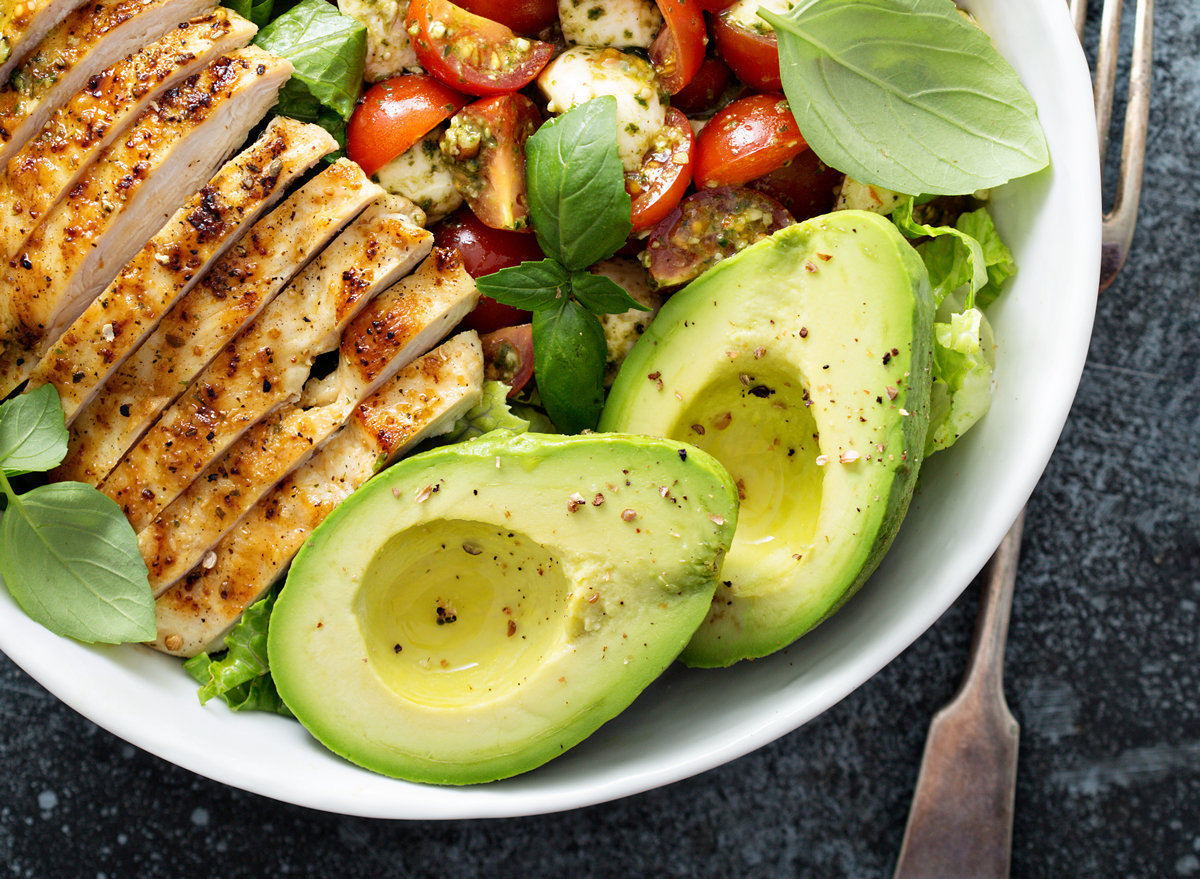
“Even foods with natural fat that are considered to be higher in healthy fat before a workout isn’t recommended because it again, the fat takes longer to digest and may weigh you down,” says Kimberlain.
A salad
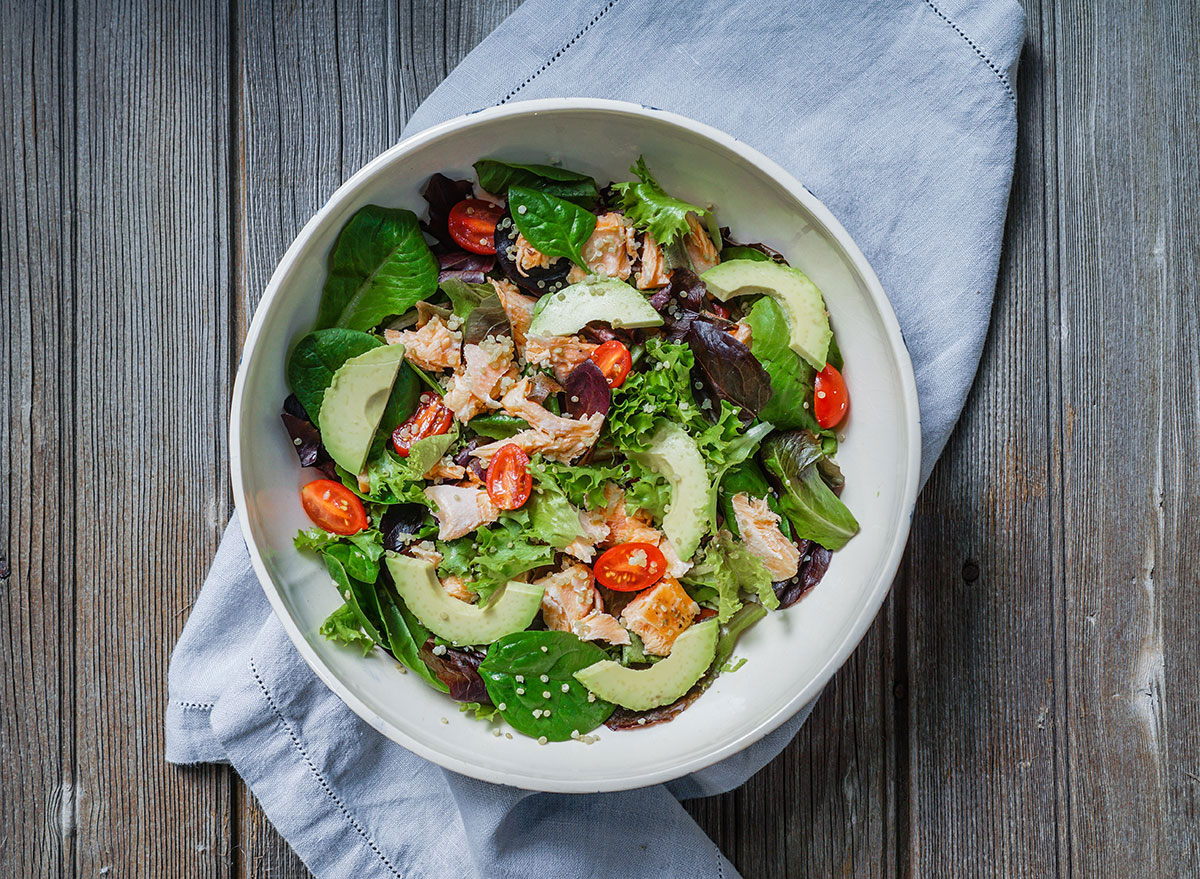
“Despite the healthy image of salads, raw veggies will be too difficult to digest when you are working out, and a salad won’t provide you the balance of healthy carbohydrates and protein you need to fuel a workout or to recover after,” says Heikkinen. “Save the salad to enjoy as part of your meal later.” To learn more about why you should be eating this leafy green dish—just as long as it’s not before a workout—read up on What Happens To Your Body When You Eat Salad Every Day.
